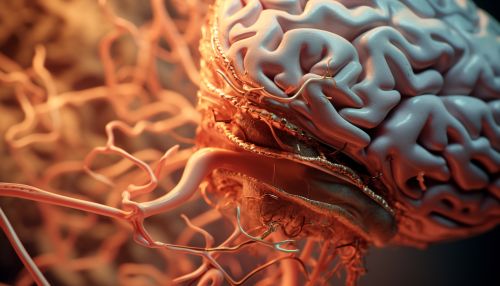Memory
Overview
Memory is a complex function of the brain that allows us to store, retain, and subsequently recall information. It is a critical aspect of cognition and is essential for numerous mental activities, including learning, reasoning, and decision-making. Memory is typically divided into two main types: short-term memory and long-term memory. Short-term memory, also known as working memory, is the ability to hold a small amount of information in an active, readily available state for a short period. Long-term memory, on the other hand, is the ability to hold onto information for extended periods, ranging from a few minutes to a lifetime.


Types of Memory
There are several different types of memory, each serving a different purpose and utilizing different parts of the brain. These include:
Sensory Memory
Sensory memory is the shortest-term element of memory. It is the ability to retain impressions of sensory information after the original stimuli have ended. It acts as a buffer for stimuli received through the five senses of sight, hearing, smell, taste, and touch, which are retained accurately, but for a very brief period.
Short-term Memory
Short-term memory (STM) is the second stage of the multi-store memory model proposed by the Atkinson-Shiffrin. The STM store is capable of storing information for a brief period. Its capacity is very limited: George A. Miller (1956), in his research on the capacity of memory, found that most people can retain about 7 items in their short-term memory.
Long-term Memory
Long-term memory (LTM) is the final stage of the multi-store memory model proposed by the Atkinson-Shiffrin, and is the stage into which information must be moved if it is to be retained long-term. The duration of STM seems to be between 15 and 30 seconds, whereas the duration of LTM is thought to be indefinite.
Memory Processes
Memory involves three major processes: encoding, storage, and retrieval.
Encoding
Encoding is the first step in creating a memory. It's a biological phenomenon, rooted in the senses, that begins with perception. Psychologists distinguish between three types of encoding: structural encoding (shallow processing), phonemic encoding (intermediate processing), and semantic encoding (deep processing).
Storage
Memory storage is the process of maintaining information in memory over time. There are three main stages in the formation and retrieval of memory: Sensory memory, Short-term memory (STM), and Long-term memory (LTM).
Retrieval
Retrieval, or getting the information out of memory and back into awareness, is the third function. When asked a question, you retrieve the information that you have previously learned.
Memory Disorders
Memory disorders can range from mild to severe, but they all result from some kind of neurological damage to the structures of the brain, thus hindering the storage, retention and recollection of memories. Memory disorders can be progressive, like Alzheimer's or Huntington's disease, or they can be immediate as in the case of traumatic brain injury.
Improving Memory
There are many techniques that can be used to improve memory. These include mnemonic devices, such as acronyms or visual images. Exercise, adequate sleep and a good diet also play a crucial role in maintaining and improving memory.
